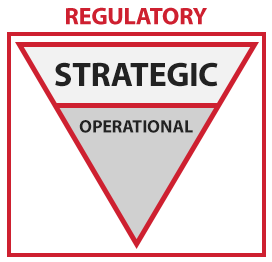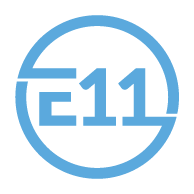Part Five in the Series: Software Development Guide for Business Leaders
Setting a delivery date for your project is the domain of the stakeholders and leaders. But, when is the best time for you to start a project? What variables do you and your project manager need to factor into this critical timing decision? Here are some factors you can reflect upon to help you make a great timing decision.
Project Motivations
Each project in your organization will fall into one or more of the following categories: strategic, operational or regulatory.
- Strategic: The project is required for the achievement of business goals.
- Regulatory: A government body has set a deadline you must comply with, i.e. new tax, privacy legislation, etc.
- Operational: Addressing a non-optimal operational situation would result in business improvement.

In almost every circumstance, when evaluating which projects to start, the strategic, or money-making projects, are going to come first. However, a regulatory or operational project can supersede a strategic project. Think about the existing and planned projects for your business and weigh how they impact your project.
Planning Window
What is your planning window: What is your time estimate for development? Once this is known, then set that window of time x 1.5 to provide you with a planning window which can slide along your time scale, known as a sliding planning window.
Inside of this time scale, you can place any critical dates including:
- Regulatory Deadlines: what regulatory constraints must be me and by what date.
- Business Deadlines: what business deadlines and product rollouts are planned and on what date.
- Pre-Existing and Contingent Development Projects: are there existing projects that need to complete before starting your project? Does your proposed system rely on the functionality being developed for another project? Include start and end dates that impact your project.
- System Upgrades: what system and critical upgrades are occurring during your planning window which either are critical to project success or that could impede project progress. Include planned system upgrades that will impact your project.
- Infrastructure Expansions or Acquisitions: what infrastructure must be acquired and implemented before deployment of your application. As you evaluate your infrastructure requirements, consider using Cloud-based servers for applications and database and developing web applications instead of traditional apps. Be sure to add these critical dates to your sliding planning window.
- Team Load: what existing projects are in play and how is your project team impacted by that load? Can you dedicate your resources; will they be required for other projects? Internal resources are finite; will your resources utilized on other projects or unavailable for your project until a future date?
The Impact of the Schedule on the Project Budget
Optimizing your budget during the planning phase is critical and can set the stage for a project that lands and is within its budget. You may also be able to find savings through scheduling that can be ‘banked.’
Using your sliding timescale, reflect on when the most cost-effective time to execute on your project is. Will pushing your project out result in cost savings or will it incur overtime wages to meet business or regulatory deadlines? Will it impact other projects and incur additional costs? What would happen if you outsourced some or all your project?
The Impact of Outsourcing on the Project Start Date

Finally, consider what would happen to each constraint if you outsourced your project development. Would it remove many of the variables, resource challenges, hardware requirements, database issues, and would it be easier to fix your budget? The answer is likely a big YES.
To summarize, setting the start date of your project impacts much more than the delivery date. It affects all aspects of the project, resources, budget, system upgrades and updates, the delivery of constrained applications, and of course, the customer; rolling out a tax software application for accountants during tax season would not be a good idea!
CoreSolutions of London, Ontario, is a locally acclaimed software development firm with over 25 years of experience.
CoreSolutions’ team of experts, including developers and project managers, build web and mobile applications using the Agile Methodology and tools. CoreSolutions will assist you through all phases of your project including:
- Brainstorming;
- Requirements Planning;
- Project Management.
Connect with CoreSolutions today to start your project with a Free Needs Analysis.








